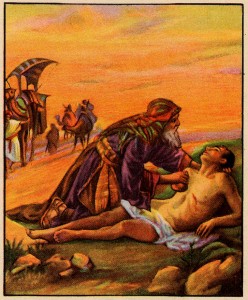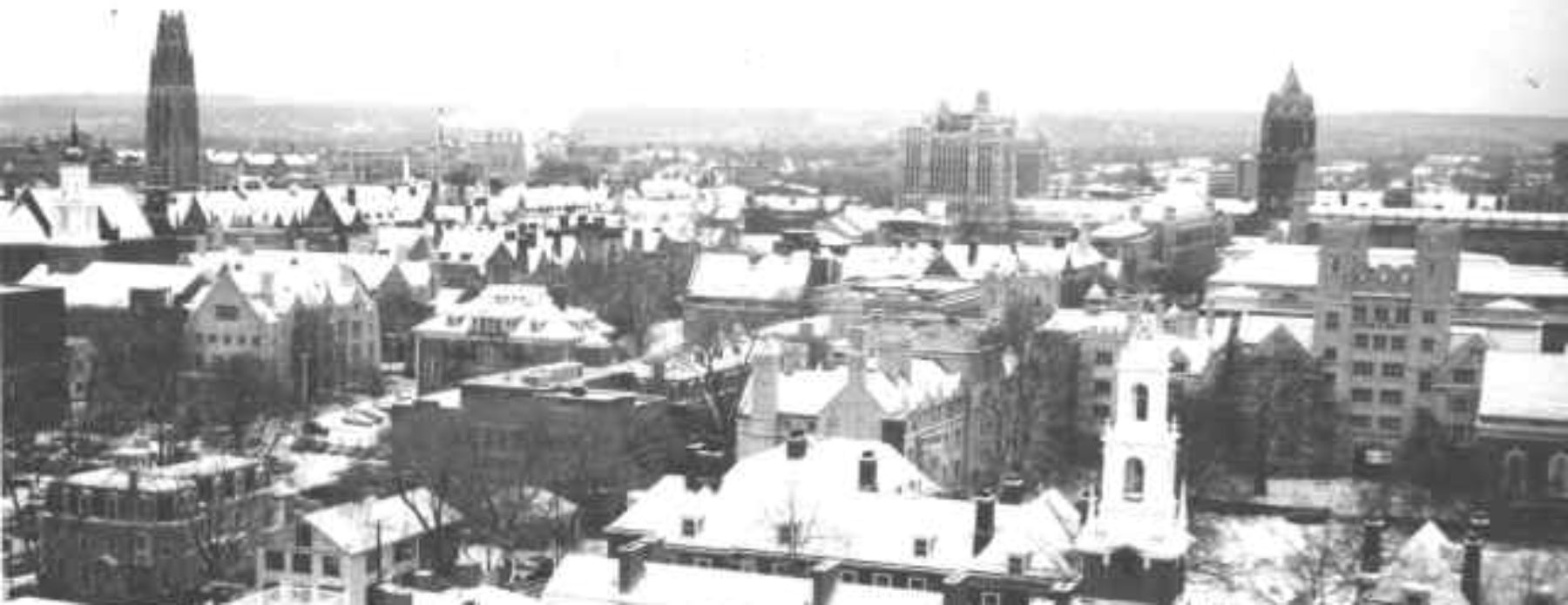 The Story That Changed My Life Yale seemed to be the ideal place for a Good Samaritan, and I had already made a fairly earnest stab at filling that classic role. |
I’d gone to church regularly ever since I could remember. There, I had heard many stories about miracles in lions’ dens and fiery furnaces, and tales of great floods. I was taught, however, that the most important was the story of Jesus Christ.
But, the only story I could understand was about the Good Samaritan. The good news about Jesus dying for the sins of the world meant nothing to me; it seemed as foreign as lions’ dens and fiery furnaces. Only the story about what the Good Samaritan did when he saw a man hurt and needing help on the road–that I could understand. I was being told that helping others in need was a good thing.
Though I didn’t realize it, I had settled what Christianity meant to me–it meant helping others.
So I helped. I gave money to “Save the Children” when I was young, tutored those who couldn’t read when I was older, and visited orphanages and convalescent homes with my church youth group in my last years before college.
So what would be next?
Yale seemed to be ideal for a Good Samaritan. There were many good volunteer programs set up to help under-privileged children, and to feed and clothe the homeless. But volunteering in New Haven was very different from volunteering in my hometown. In Los Angeles, I could drive away from my rescue work: there was a buffer zone between me and the suffering. But at Yale, whether going to class or to lunch, every step brought me face-to-face with the hurt and needy man on the road that the Good Samaritan would have helped.
I gave a dollar here and there, sometimes more, but that “hurt and needy man” would never disappear. He seemed to be everywhere I went.
Could I turn my back on even one and still confess to be a Christian? Didn’t helping the tenth and not that eleventh man alter the principle behind the lesson of the Good Samaritan?
But, as I faced that “hurt and needy man on the road” day after day I found myself frustrated and eventually hardened. What could I do–was it right to give away my parents’ money? I reasoned it wasn’t, so I decided to shut my eyes to that man on the road until I made my own money.
However, my conscience convicted me that the issue was not my parents’ money but my own heart. There was no love there–not for those I passed on the street, nor for those I stopped to help. My deeds meant nothing. They could not cover what was really in my heart or make up what was lacking. I thought of the verse: “Love your neighbor as yourself.” An impossible standard, I thought, knowing I could not obey it.
I became unsettled about my set idea of what a Christian was, worrying that I really wasn’t one. Gradually, it dawned on me that it wasn’t a filled resume that God was looking for–he was looking at my heart.
I was gradually seeing that my heart was incurably wicked – without love for others, nor love for God. At that point, I began to long for a new heart.
Then one night, God opened my eyes to see that Jesus had offered his own heart, his life for a world of lost sinners. This story, that had once meant nothing to me, now brought unspeakable joy.
God had always known that our hearts were incurably wicked. He knew no amount of service could change who we were. So, I finally admitted my helpless estate and accepted Jesus’ gift–a new life in Himself.
“For it is by grace that you have been saved, through faith–and this not from yourselves, it is the gift of God–not by works, so that no one can boast” (Ephesians 2:8-9).
Vivian Kim, Silliman ’96
© 1994 The Yale Standard Committee

